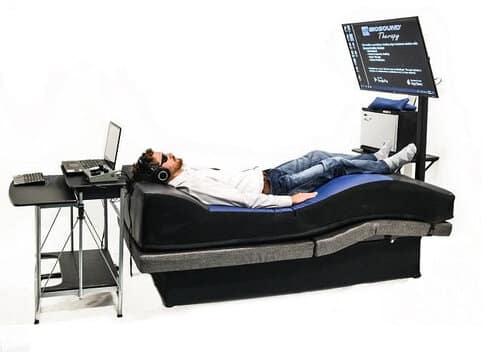Request a Callback
"*" indicates required fields
Motivational Interviewing
Motivational interviewing techniques play a crucial role in the field of mental health and substance abuse treatment. As a mental health professional, mastering the art of motivational interviewing can significantly enhance your ability to engage and support your clients in making positive behavioral changes.
What Is Motivational Interviewing
Motivational interviewing is a client-centered, directive therapeutic approach that aims to elicit behavioral change by helping individuals explore and resolve their ambivalence. It is rooted in the understanding that intrinsic motivation is a powerful catalyst for change and that individuals are more likely to commit to change when they perceive it as aligned with their own values and goals.
Unlike traditional counseling approaches that may rely on persuasion and advice-giving, motivational interviewing focuses on collaboration, evocation, and autonomy, making it particularly effective in addressing resistance and fostering lasting change.
Motivational interviewing is not only a set of techniques but also a guiding philosophy that emphasizes the importance of empathy, acceptance, and partnership in the therapeutic process.
The Principles of Motivational Interviewing
The principles of motivational interviewing are deeply rooted in the collaborative, client-centered nature of this therapeutic approach.
- One of the fundamental principles is the emphasis on empathy, where the practitioner seeks to understand the client’s perspective without judgment or criticism.
- Another core principle of motivational interviewing is the cultivation of discrepancy, which involves helping clients recognize the misalignment between their current behaviors and their long-term goals or values.
- The principle of rolling with resistance acknowledges that resistance to change is a natural part of the process and encourages practitioners to respond with empathy and understanding rather than confrontation.


Advantages of Using Motivational Interviewing Techniques
Motivational interviewing offers several distinct advantages for mental health and substance abuse professionals.
- One of the key benefits is its effectiveness in engaging and retaining clients who may initially be ambivalent or resistant to change.
- Another advantage of motivational interviewing techniques is their adaptability across diverse populations and settings. Whether working with individuals, groups, or communities, practitioners can tailor the approach to meet the unique needs and circumstances of their clients.
- Additionally, by helping clients explore their intrinsic motivations and resolve ambivalence, practitioners can support clients in making meaningful and sustainable changes in their attitudes, beliefs, and behaviors.
The Stages of Change Model in Motivational Interviewing
The integration of the stages of change model within the framework of motivational interviewing provides mental health professionals with a comprehensive roadmap for supporting clients in their journey toward behavioral change. By understanding the unique challenges and opportunities presented at each stage of change, practitioners can tailor their interventions to meet the evolving needs and motivations of their clients, maximizing the potential for positive outcomes.
- Precontemplation stage: In the precontemplation stage, where clients may be resistant or unaware of the need for change, practitioners can employ motivational interviewing techniques to raise awareness, evoke motivation, and gently challenge the status quo. By using open-ended questions, affirmations, and reflective listening, practitioners can create a non-confrontational space where clients feel understood and supported in exploring their ambivalence.
- Contemplation stage: As clients move into the contemplation stage, where they are considering the possibility of change but may still feel ambivalent, practitioners can deepen the exploration of motivations, values, and goals, helping clients weigh the pros and cons of change and resolve their inner conflicts. By utilizing reflective listening and strategic questions, practitioners can guide clients toward a clearer understanding of their aspirations and the potential for change, fostering a sense of hope and possibility.
- Preparation and Action Stages: In the preparation and action stages, practitioners can collaborate with clients to develop concrete plans for change, identify potential obstacles, and bolster their motivation and self-efficacy. By providing support, encouragement, and skill-building opportunities, practitioners can empower clients to take meaningful steps toward their goals, enhancing their sense of agency and self-determination.
- Maintenance stage: Finally, in the maintenance stage, practitioners can assist clients in consolidating their gains, preventing relapse, and reinforcing their motivation and resilience.
By utilizing summaries and affirmations, practitioners can help clients reflect on their progress, celebrate their achievements, and envision a future aligned with their values and aspirations, fostering a sense of purpose and commitment to sustained change.
The Core Skills of Motivational Interviewing
- Open-ended questions: Open-ended questions serve as a catalyst for in-depth exploration. By using open-ended questions strategically, practitioners can elicit rich and meaningful responses from clients, gaining valuable insights into their motivations, concerns, and aspirations.
- Affirmations: It play a crucial role in recognizing and reinforcing the client’s strengths, efforts, and positive qualities, fostering a sense of empowerment, validation, and self-efficacy.
- Reflective: Reflective listening involves the skillful art of mirroring and validating the client’s experiences and emotions, demonstrating empathy, understanding, and attunement to the client’s inner world.
- Summaries: Summaries serve as concise recaps of key points discussed during the session, offering clients an opportunity to reflect on their thoughts and experiences and providing a sense of direction and coherence to the conversation.


We believe in Holistic Therapies.

Biosound Therapy
Biosound Therapy is the integration of Biofeedback, Therapeutic Music, sound healing massage, and guided imagery. The guided imagery selections on the Biofeedback Bed are designed to address the guilt, fear, shame and trauma associated as underlying issues for most dealing with addiction. These moving meditations begin with a journey to a completely relaxed state of mind. Then, utilizing a unique echo effect, powerful and positive affirmations are delivered. This combination helps the client overcome those deep rooted, negative patterns of thought and behavior.
- Relieves pain & stress
- Assists with Detoxification Treatment
- Lowers cravings, impulse behavior and racing thoughts
- Lowers anxiety & depression

Equine Psychotherapy
Equine-Assisted Therapy is used to treat patients challenged with everything from drug and alcohol abuse dependency and post-traumatic stress syndrome. The therapy takes advantage of the mental and physical exercise that working with a horse can provide. Equine therapy:
- Helps clients learn to identify and cope with feelings
- Promotes Effective Communication Skills
- Helps Addicts Better Manage Behavior
- Teaches How to Set Boundaries
- Restores Self-Esteem and Self-Worth
*This is an optional, additional therapeutic therapy available after clinical treatment hours.

Massage Therapy
Clients at Relevance receive weekly massage therapy from our Licensed Therapists. Some additional benefits include:
- Release of ‘feel-good’ hormones. According to the American Massage Therapy Association (AMTA), massage helps to increase serotonin and dopamine (feel-good hormones) and decrease cortisol which is related to stress.
- Reduce agitation and anxiety and ease sleep problems.
- Provides a natural, alternative method of healing, free of drugs.
- Helps with the removal of metabolic waste. Therapeutic massage triggers or stimulates the body’s parasympathetic nervous system. This in turn can increase circulation and promote the effectiveness of the lymph system. The lymph system helps to alleviate pain symptoms and is responsible for removing the body’s metabolic waste build-up.
- Provides the client with a connection to their body, and improves or increases body awareness.
On The Way To Recovery
Mastering motivational interviewing techniques is a valuable asset for mental health and substance abuse professionals seeking to engage, support, and empower their clients in making positive behavioral changes.
As mental health professionals, we have the opportunity to create a supportive and non-confrontational space where clients feel understood, valued, and empowered to explore their motivations.


Get the Help You Need, Now.
Start your journey to substance abuse recovery with us in New Jersey today.




